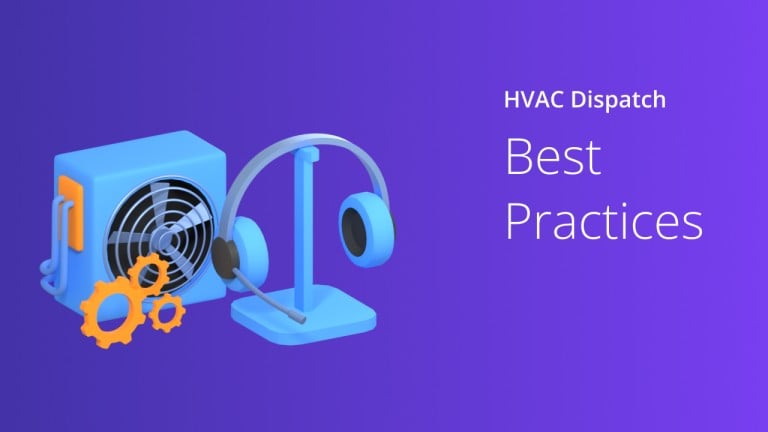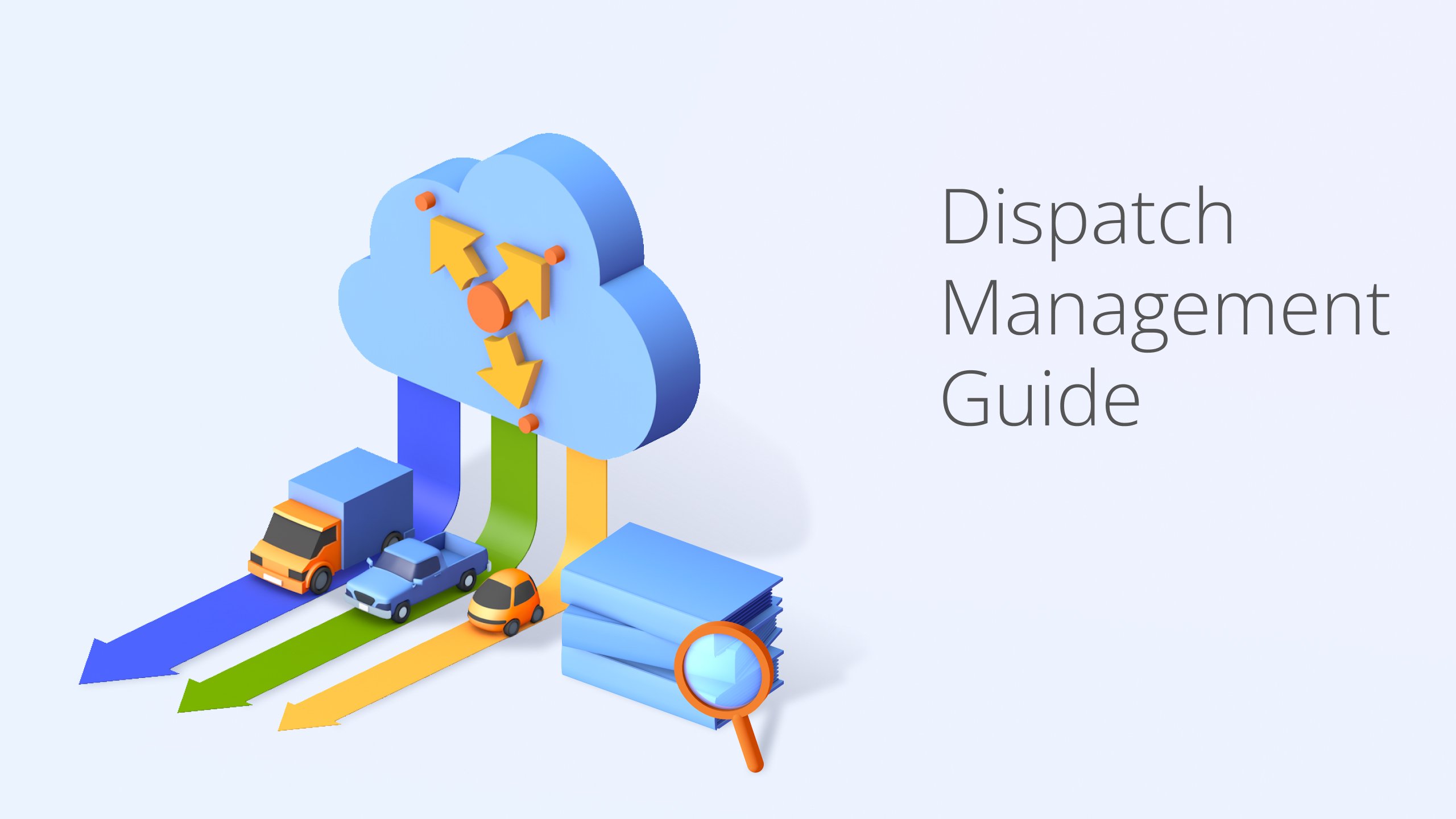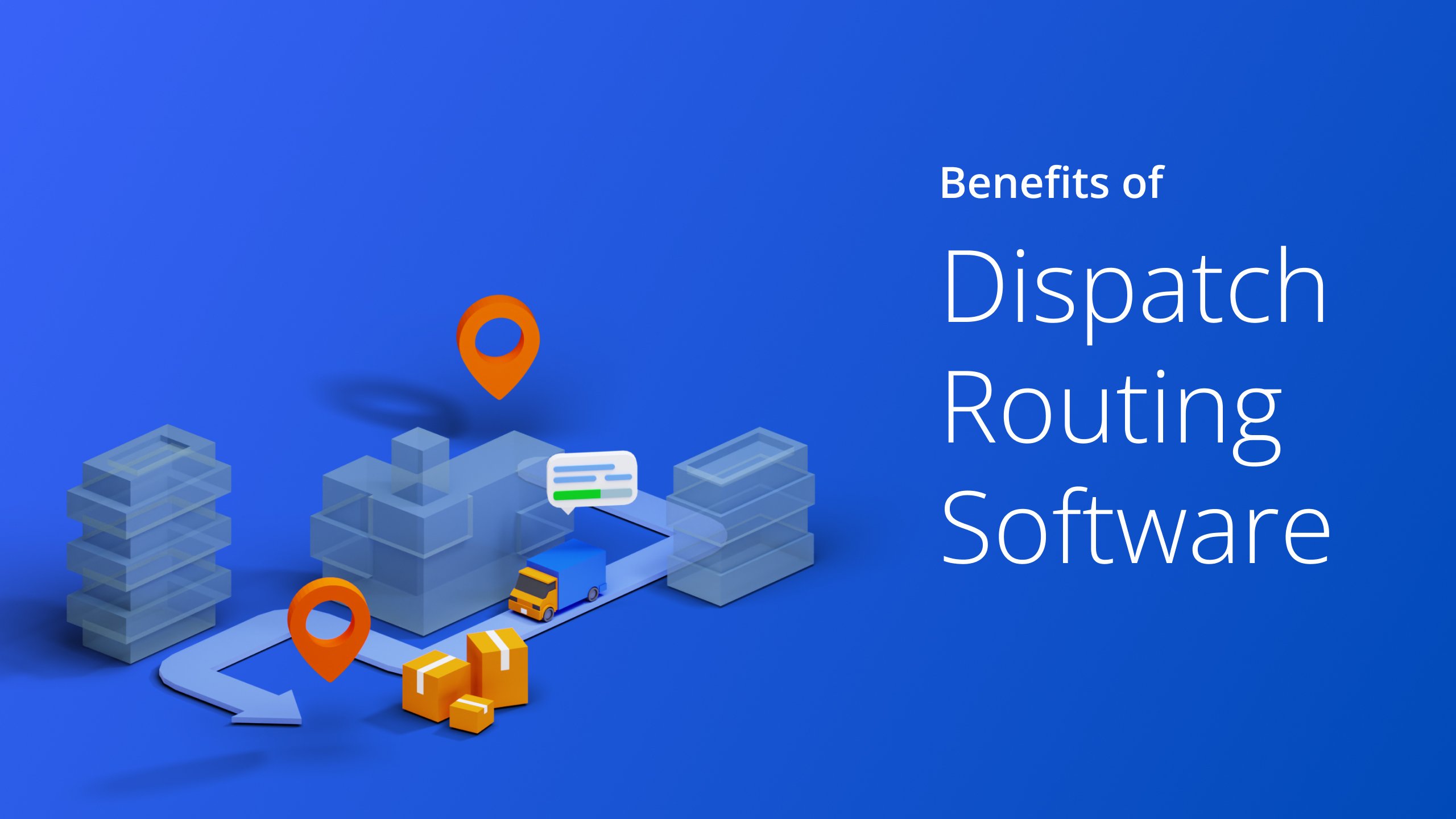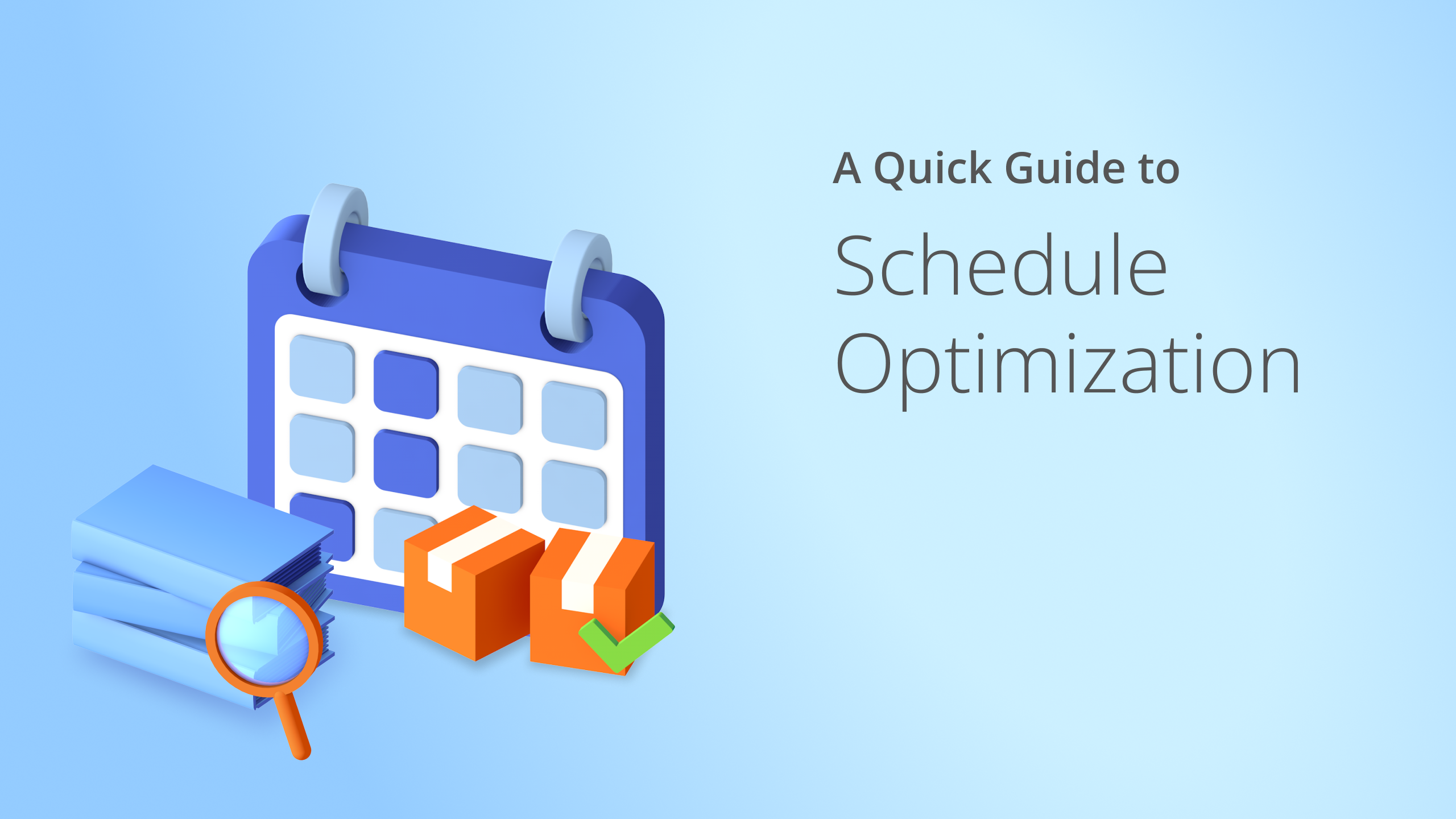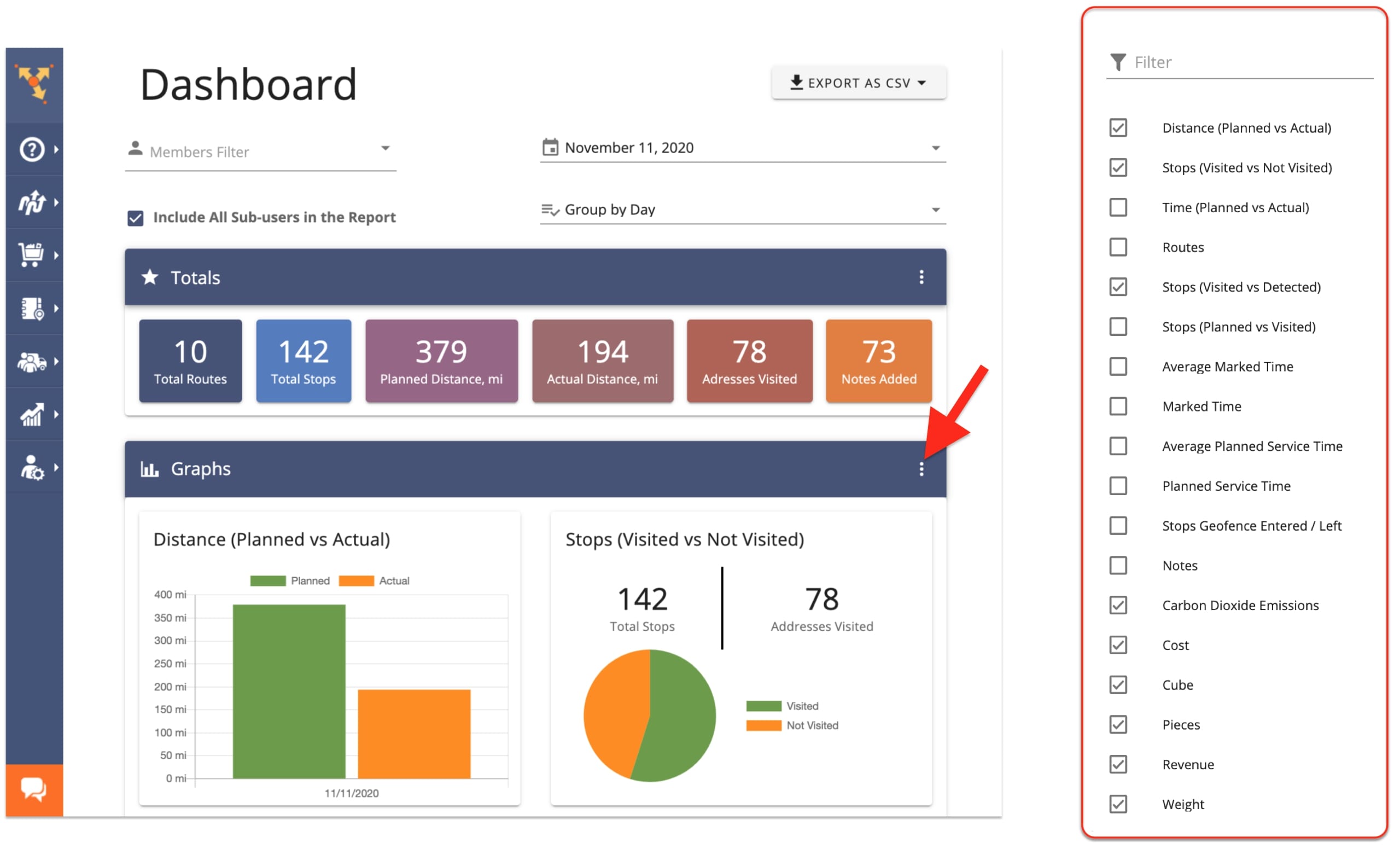Dispatching is pivotal in ensuring seamless operations in the dynamic realm of commercial HVAC services. You must manage many challenges, such as handling complex service schedules, guiding technicians, updating customers, swiftly addressing emergency calls, and more.
Navigating these complexities requires more than just intuition. It demands a strategic and comprehensive approach that addresses the multifaceted nature of service calls, technician availability, and customer expectations.
Therefore, this blog post will share the tips and tools to streamline your HVAC dispatching process. From optimizing routes to leveraging cutting-edge technologies, we’re here to equip you with the knowledge to manage the challenges and lead your team to unmatched efficiency. We will also show you how Route4Me can help make HVAC dispatching efficient.
What is HVAC Dispatching?
HVAC dispatching is the process of coordinating and scheduling the deployment of technicians who repair and maintain heating, ventilation, and air conditioning (HVAC) systems.
It involves assigning technicians to specific jobs, optimizing routes for efficient travel, and ensuring timely responses to customer requests. The primary goal is to streamline the workflow, minimize downtime, and boost service efficiency.
What Does an HVAC Dispatcher Do?
An HVAC dispatcher plays a crucial role in coordinating and facilitating the functioning of the HVAC company’s services. Here is an overview of what they do:
- Plan which customers require HVAC services and delegate the tasks to the respective technicians.
- Arrange the technicians’ work shifts and appointment schedules to minimize downtime.
- Plan the most efficient routes to ensure technicians quickly arrive at the site, complete their tasks, and proceed to subsequent service requests on time.
- Address challenges, providing support and solutions to technicians in the field.
HVAC Dispatching Best Practices
Here are several ways to make HVAC dispatching efficient.
Optimize Routes
Plan well-optimized routes to minimize travel time for technicians, reduce fuel costs, and ensure they arrive at client locations on time. There are several other benefits of route optimization, such as:
1. Allows technicians to attend to more service calls within a given timeframe.
2. Technicians can spend more time servicing HVAC systems and commuting less between locations. This increased focus on productive tasks increases technician productivity.
3. Enable HVAC technicians to respond to service calls more promptly. This improves customer satisfaction as issues are addressed on time and a positive reputation for your HVAC service business.
4. Reduced travel distances and more efficient routes reduce wear and tear on HVAC service vehicles. This extends the lifespan of the fleet and lowers maintenance costs over time.
However, manual route planning using pen and paper may not be feasible to optimize routes. You will plan routes based on your best guess and cannot anticipate problems en route, such as bad weather, that could jeopardize the process.
Therefore, use an advanced route planner like Route4Me to plan 100% accurate routes. It considers weather, traffic, roadblocks, and more to ensure your technicians never get stuck on the road.
All you need to do is upload the list of addresses your technicians need to visit, set some parameters, and hit optimize. That’s it!
Route4Me’s vehicle routing software will provide well-optimized routes in less than 30 seconds.
Want To See For Yourself How Route4Me Can Make HVAC Dispatching Hassle-free?

Plan in Advance
Planning ahead enables dispatchers to create well-structured schedules and routes. Here is in detail how it can help.
1. Advance planning allows a thorough assessment of available resources, including personnel, vehicles, and equipment. HVAC dispatchers can optimize response times and minimize downtime by strategically allocating these resources based on demand and geographic considerations.
2. Anticipate maintenance needs to schedule preventive maintenance tasks during periods of lower demand. This proactive approach helps prevent unexpected breakdowns, reducing the likelihood of emergency calls and improving system reliability.
3. Advance planning helps forecast the types and quantities of parts that may be required. Dispatchers can ensure that technicians have the necessary supplies, minimizing delays and the need for multiple trips to complete a job.
4. Proactive planning helps develop contingency plans for emergencies. HVAC dispatchers can respond swiftly and efficiently with predefined protocols for urgent calls and unexpected disruptions, minimizing downtime and customer inconvenience.
Route4Me’s multi-stop route optimization software can help here, too. You can plan and schedule your routes up to one year in advance.
You can dynamically schedule routes for the most efficient timing and even modify routes in progress. When you change the route schedule, the software automatically updates the route on all devices linked to your Route4Me account.
You can even create custom route schedules for repeat service appointments based on your unique routing needs.
Keep Customers Informed
Maintaining consistent and clear communication with customers is crucial for several reasons.
Keeping customers informed contributes to customer satisfaction. When customers receive timely updates on technician arrival times, potential delays, or any changes to the service schedule, it demonstrates a commitment to customer service. This improves the customer experience and builds trust in the HVAC service, encouraging repeat business and positive referrals.
Informed customers are better equipped to plan their activities around HVAC service appointments. Clear communication about service timelines allows businesses to optimize their schedules, minimize disruptions, and ensure that the HVAC service integrates seamlessly with their operational needs.
Furthermore, transparency in communication is essential for addressing any concerns or inquiries that customers may have. Accessible and transparent information allows for a smoother communication flow, enabling HVAC dispatchers to provide answers promptly and address customer queries effectively.
Route4Me’s route optimization solution offers a customer portal feature that enables end customers to access real-time information about their service appointments.
They need to log into Route4Me using a tracking number or their Account ID to monitor the status of their inbound visit.
The customer portal allows HVAC dispatchers to customize the information visible to customers, including estimated arrival times, technician identity, custom fields, and more.
Route4Me also offers a customer alerting and notifications feature that automatically informs customers through SMS text messages or email when a technician is nearby or starting their journey.
HVAC dispatchers can even notify customers the day before a route with the approximate arrival time of a technician with up to 5 minutes accuracy.
Collect and Analyze Data
Data is a valuable tool for optimizing operational efficiency. By gathering information on service requests, technician performance, and response times, dispatchers can streamline processes and the allocation of resources efficiently.
Dispatchers can assess technician performance. Tracking key metrics such as completion times and total jobs completed compared to the planned allows dispatchers to recognize high-performing technicians and identify areas for improvement. This data-driven approach facilitates implementing targeted training programs and incentives to enhance team performance.
Plus, data-driven decision-making saves costs. HVAC dispatchers can take measures to improve fuel efficiency by analyzing operational expenses such as fuel consumption.
Route4Me’s multi-stop route planner makes this job easier. It offers a reporting and analytics feature that helps dispatchers analyze crucial data such as total routes completed and fuel expenses, compare planned vs. visited stops, and more.
Learn about Route4Me’s reporting and analytics feature and how it can benefit.
Real-time Tracking
HVAC dispatchers must track vehicles and technicians in real-time to ensure they show up on time.
Additionally, real-time tracking enhances customer service by providing accurate and up-to-date information to clients. Dispatchers can communicate accurate arrival times, reducing customer uncertainty and improving satisfaction.
Also, real-time tracking enables dispatchers to address unexpected challenges quickly. If a technician encounters delays, dispatchers can reassign tasks, update customers on revised arrival times, and make necessary adjustments to the schedule in real-time.
Dispatchers can quickly locate and assist technicians in emergencies or unforeseen circumstances, ensuring their well-being and promptly addressing urgent situations.
Route4Me has a commercial GPS tracker that helps you monitor your fleet or vehicles on the road in real-time. It even offers a speed alert to ensure drivers or technicians stay within the speed limit.
Add Breaks
Fatigue can compromise a technician’s alertness and decision-making abilities, increasing the risk of accidents or errors. By scheduling breaks, dispatchers contribute to the safety of technicians on the road and at job sites.
Plus, providing designated break times demonstrates that the company values the health and comfort of its workforce. This promotes a positive work environment and encourages a sense of loyalty and commitment among technicians.
Route4Me’s multiple-stop route planner app offers a Driver Breaks feature, allowing you to easily insert customizable break stops into your pre-planned routes with a simple touch of a button.
The system will automatically determine the optimal location and sequence for these breaks while recalculating the route’s time and distance accordingly. You can predefine the duration of each break and choose from multiple insertion options.
Learn how to insert driver breaks in Route4Me.
Frequently Asked Questions(FAQs) about HVAC Dispatching Best Practices
What does a dispatcher do in HVAC?
How much time does HVAC dispatcher spend planning routes?
Conclusion about HVAC Dispatching
Want To See For Yourself How Route4Me Can Make HVAC Dispatching Hassle-free?

